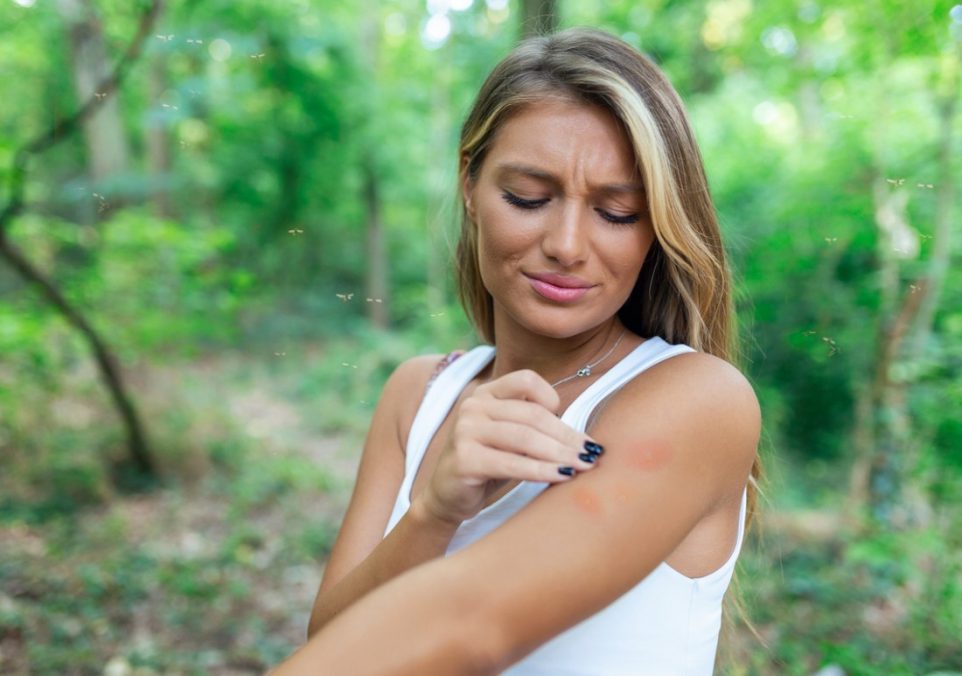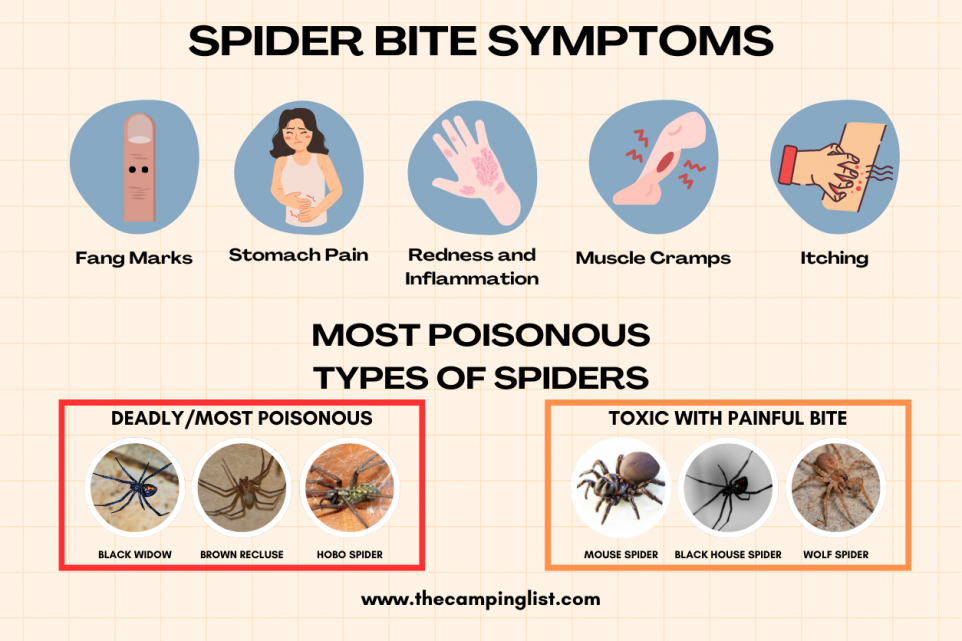Spider Bite vs. Mosquito Bite: How To Tell the Difference

As the warm summer breeze rolls in, so does an age-old annoyance: insect bites. Whether you’re spending a lazy afternoon in the park, hiking through the woods, or enjoying a quiet evening on your porch, you’ll likely encounter these pesky critters. The itching red bumps that follow a bite can be uncomfortable and leave you wondering whether it was a mosquito or a spider that got you.
Understanding the differences between spider and mosquito bites is crucial for effective self-care and knowing when to take preventive measures. We’ll explore the distinct characteristics of these bites, from their appearance and symptoms to the potential risks involved. So, the next time you notice an itchy bump, you can identify the culprit and take the necessary steps for relief.
Anatomy of a Spider Bite
To understand the difference between spider bites and mosquito bites, it’s essential to know the anatomy of a spider bite. When a spider bites, it injects venom into its victim through its fangs. The venom can vary greatly between spider species, from harmless to potentially dangerous. However, most common house spiders have venom that is not harmful to humans, and their bites are typically harmless.

A spider bite usually appears as a small, red bump at the site of the bite. It may be slightly swollen and painful to the touch. Some spider bites can cause more severe symptoms, such as nausea, muscle pain, and fever, depending on the spider species and the individual’s reaction to the venom. In extremely rare cases, certain spider bites, like those from the black widow or brown recluse spiders, can lead to severe complications and require immediate medical attention.
The Mosquito Bite Experience
On the other hand, mosquito bites are a common annoyance, especially in warm and humid climates. When a mosquito bites, it uses its proboscis to pierce the skin and feed on blood. In the process, it injects saliva, which contains anticoagulants to prevent the blood from clotting while it feeds. This saliva causes the characteristic itching and swelling associated with mosquito bites.
Mosquito bites typically appear as small, red, itchy bumps with a central puncture point. Unlike spider bites, mosquito bites are usually not painful unless scratched excessively. While mosquito bites are generally harmless, and you can avoid them with mosquito repellent, they can sometimes lead to complications, such as infections if scratched vigorously.
View this post on Instagram
Key Differences
Now that we understand the basics of both spider and mosquito bites let’s delve into the key differences that can help you tell them apart:
- Pain: Spider bites are often more painful than mosquito bites. If you experience significant pain at the site of the bite, it’s more likely to be a spider bite.
- Swelling: Spider bites tend to cause localized swelling around the bite site. This swelling can vary in intensity but is usually more pronounced than the mild swelling associated with mosquito bites.
- Itching: Both spider and mosquito bites can be itchy, but mosquito bites are notorious for their itchiness. If the itching is intense and persistent, it’s more likely a mosquito bite.
- Bite appearance: Mosquito bites typically have a central puncture point where the mosquito’s proboscis enters the skin. Spider bites may not have this puncture point but instead present as a small, red bump.
- Symptoms: If you experience symptoms beyond localized pain, itching, and swelling, such as muscle pain, nausea, or fever, it could be a spider bite, and you should seek medical attention.
- Bite patterns: Mosquitoes often leave multiple bites in a cluster, whereas spider bites are usually solitary. If you have several similar-looking bites in close proximity, they’re more likely mosquito bites.
What to Do When You Get Bitten
Whether you suspect a spider bite or a mosquito bite, there are some general steps you can take to alleviate discomfort and prevent complications:
- Clean the bite area: Wash the affected area with mild soap and water to reduce the risk of infection.
- Apply a cold compress: Applying a cold compress or ice pack can help reduce swelling and relieve itching.
- Use over-the-counter remedies: Over-the-counter creams or ointments containing hydrocortisone or antihistamines can help reduce itching and inflammation.
- Avoid scratching: As tempting as it may be, try to avoid scratching the bite to prevent infection and scarring.
- Take antihistamines: Over-the-counter antihistamine medications can help alleviate itching and reduce the body’s histamine response.
- Monitor for signs of infection: Keep an eye on the bite for any signs of infection, such as increased redness, warmth, pus, or worsening pain. If these symptoms develop, seek medical attention.
When to See a Doctor
While you can manage most spider and mosquito bites at home, there are certain situations where you should seek medical attention:
- Severe symptoms: If you experience severe symptoms such as difficulty breathing, muscle cramps, nausea, or fever, especially after a spider bite, seek immediate medical help.
- Worsening condition: If the bite area becomes increasingly swollen, painful, or shows signs of infection, consult a healthcare professional.
- Bites in sensitive areas: A doctor should evaluate bites on the face, near the eyes, or in the genital area to prevent complications.
- Known spider bite from a dangerous species: If you are certain a potentially dangerous spider like a black widow or brown recluse bit you, seek medical attention even if the symptoms are mild.
Conclusion
While spider bites and mosquito bites share similarities in appearance and symptoms, key differences can help you distinguish between them. Understanding these differences is essential for appropriate self-care and knowing when to seek medical attention. Remember, most bites from common spiders and mosquitoes are harmless, and you can manage them with basic home remedies. Still, it’s always better to be cautious when dealing with unfamiliar or severe symptoms. Consult a healthcare professional for guidance and peace of mind if in doubt.
Your Adventure, Our Experience
At TheCampingList, our dedication to authenticity and reliability stems from our own adventures in the great outdoors. Our team, comprised of seasoned experts in hiking, camping, climbing, cycling, fishing, and hunting, rigorously tests every product and shares insights drawn from real experiences. This hands-on approach ensures our reviews and guides meet the highest standards of durability, functionality, and comfort. Moreover, our platform thrives on the rich contributions and feedback from our vibrant community of enthusiasts. We pride ourselves on delivering unbiased, educational content that empowers and informs your outdoor pursuits. Trust in TheCampingList for genuine advice and support, where we're all about enriching your journey, every step of the way.